- Home >
- Organika Apple Pectin 330mg - 90 Caps - Organika
Apple Pectin 330mg - 90 Caps - Organika
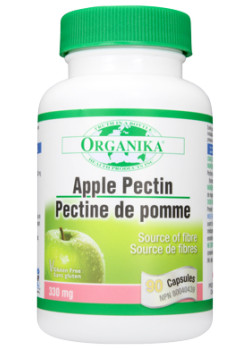
We're sorry, we no longer carry this item.
Check These out
Suggested, Similar, & Related Products:
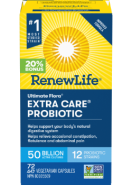
Sale: $54.99
Reg.: $69.99 (Save $15.00)
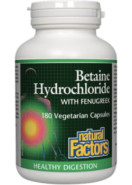
Sale: $17.99
Reg.: $26.99 (Save $9.00)
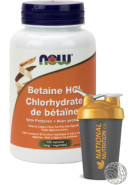
Sale: $24.99
Reg.: $29.99 (Save $5.00)
(Click Add to Select Bonus)
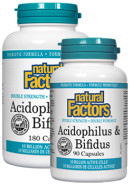
Sale: $26.99
Reg.: $44.99 (Save $18.00)
(Click Add to Select Bonus)
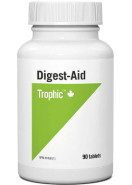
Sale: $14.95
Reg.: $18.99 (Save $4.04)
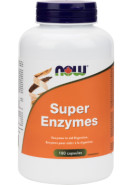
Sale: $34.99
Reg.: $54.99 (Save $20.00)
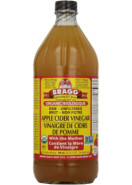
Sale: $8.99
Reg.: $9.99 (Save $1.00)
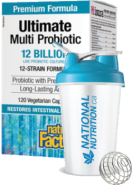
Sale: $43.97
Reg.: $47.49 (Save $3.52)
(Click Add to Select Bonus)
Or, Shop our Latest Deals:
Shop Now >- 330mg
- Apple Pectin
Capsule:
natural gelatin
Format
 Capsules
Capsules
90 Caps
Dosage
Take 1-3 capsules a day with water
Important Information
Contains no: dairy, eggs, artificial colours, sweeteners, wheat, yeast, soya or corn
- For the maintenance of good health
- Supports healthy digestive tract
- Supports intestinal health
- Source of Fiber
- Easy to swallow capsule
Related Videos
No Related VideosRelated Articles
Articles by a naturopathic doctor.
Organika, formulators of Canada’s best-selling Collagen and marine collagen and Bone Broth supports skin and joint health. Organika's health products also include; Organika spirulina, Chlorella, Curcumin to support inflammation, Organika Enhanced Collagen Protein, and Adaptogens to provide balance. Shop Organika here at National Nutrition.ca for quality, Canadian-made supplements.
Fiber
Every time we turn around something reminds us about the importance of fiber. Advertising touts products new and improved when they are considered high fiber or have added whole grain. So what's all the fuss about? The standard North American diet is largely deficient in fiber because of the refining process. It strips the fibrous coat off of grains and removes the skins of fruits and vegetables.
Thus the food becomes easier to process but deficient in fiber and nutrients. Colon cancer, diabetes and high cholesterol are just a few of the conditions that afflict millions of people and can be helped by proper fiber intake. There are several different types of fiber each with their own health benefits.
Bran, gums and mucilages are fibers that regulate blood sugar and lower cholesterol. They also bind to toxins and waste products in the intestines, ensuring that these harmful agents pass through the digestive tract without being reabsorbed by the body. By eating oatmeal, oat bran, sesame seeds and dried beans you take in substantial amounts of these fibers. Some medicinal types of this fiber are glucomannan and psyllium seed. Glucomannan binds to fat in the intestines, normalizes blood sugar and decreases appetite (by expanding in the stomach). It benefits those who are obese, diabetic or hypoglycemic. Psyllium seed is an intestinal cleanser and stool softener. It is the major component of the commercial preparation called Metamucil. But Metamucil contains colourings and flavourings that are not found in psyllium preparations.
Cellulose is an indigestible fiber that is found in fruit and vegetable skins. Because it is not absorbed in the gastrointestinal tract it bulks the stool and acts as an intestinal cleanser. It helps to prevent and treat hemorrhoids, varicose veins, constipation and colitis. It also binds to toxins so that they are not absorbed into the body.
Hemicellulose is also an indigestible fiber that is found in fruit and vegetables. It regulates the water content of the stool. It is used as a treatment for weight loss, constipation, detoxification and the prevention of colon cancer.
Lignin is a fiber that has an affinity for fats and bile acids. It binds to these substances in the intestines and prevents their absorption or resorption into the body. Lignin is used to lower cholesterol, prevent gallstones and treat diabetes and colon cancer.
Pectin slows the absorption of food after meals thereby decreasing the rate at which blood sugar enters the body. This is especially beneficial for people with diabetes whose bodies cannot properly take sugar into cells. Pectin, especially apple pectin, also binds to fats and bile acids. Thus it is used to prevent gallstones, and lower cholesterol. Citrus pectin has been studied for its ability to remove toxins from the body, reduce side effects from radiation therapy and limit tumour metastasis.
Fiber can be added to the diet by increasing your intake of whole grains, fresh fruit and vegetables (with skin!) and beans. If it is still needed, many commercial fiber preparations, each with a unique mix of fibers in tablets, capsules or powder form, are available. Read fiber supplements carefully because some may contain laxatives, making those preparations unsuitable for long-term use.
Soluble fibre dissolves in water. Its main medicinal function is to slow down the speed of digestion, By doing this, it stabilizes blood sugar, as well as increases the uptake of mineral and nutrients during digestion. Psyllium, apples, beans, dried apricots, and oat bran are all excellent sources of soluble fibre. Soluble fibres that are high in inulin or fructo-oligosaccharides, are said to have a high prebiotic potential or content. These fibres help to stimulate the selective growth of "good" intestinal bacteria (mainly the lactobacillus and bifidobacterium species), at the expense of "bad" bacteria. Bacteria like e-coli and clostridium species are also a normal and necessary as part of healthy gut flora, but if overgrown or unopposed, are more likely to cause infection. Leeks, onion, garlic, asparagus, jeruselum artichoke and chicory root are all high in inulin.
Insoluble fibre, in comparison, does not dissolve in water, nor does to affect the rate of digestion. It acts to increase stool volume, thereby also stimulating normal bowel contractions. Many grains contain both soluble and insoluble fibres. Examples of some sources of insoluble fibre include wheat, corn, rice, vegetables and beans.
The recommended intake of fibre is anywhere from 25-38 g/day, a goal that can be achieved quite easily if you know how to make the most of your diet. 2 pieces of whole wheat toast or 3/4 cups of cooked oats have about 6 g of dietary fibre. A cup of spinach has 7 g, while 1/2 of cooked blacked beans has just under 10 g of fibre.
- Reviews
- POST A NEW REVIEW
Tell everyone what you think about this item!















